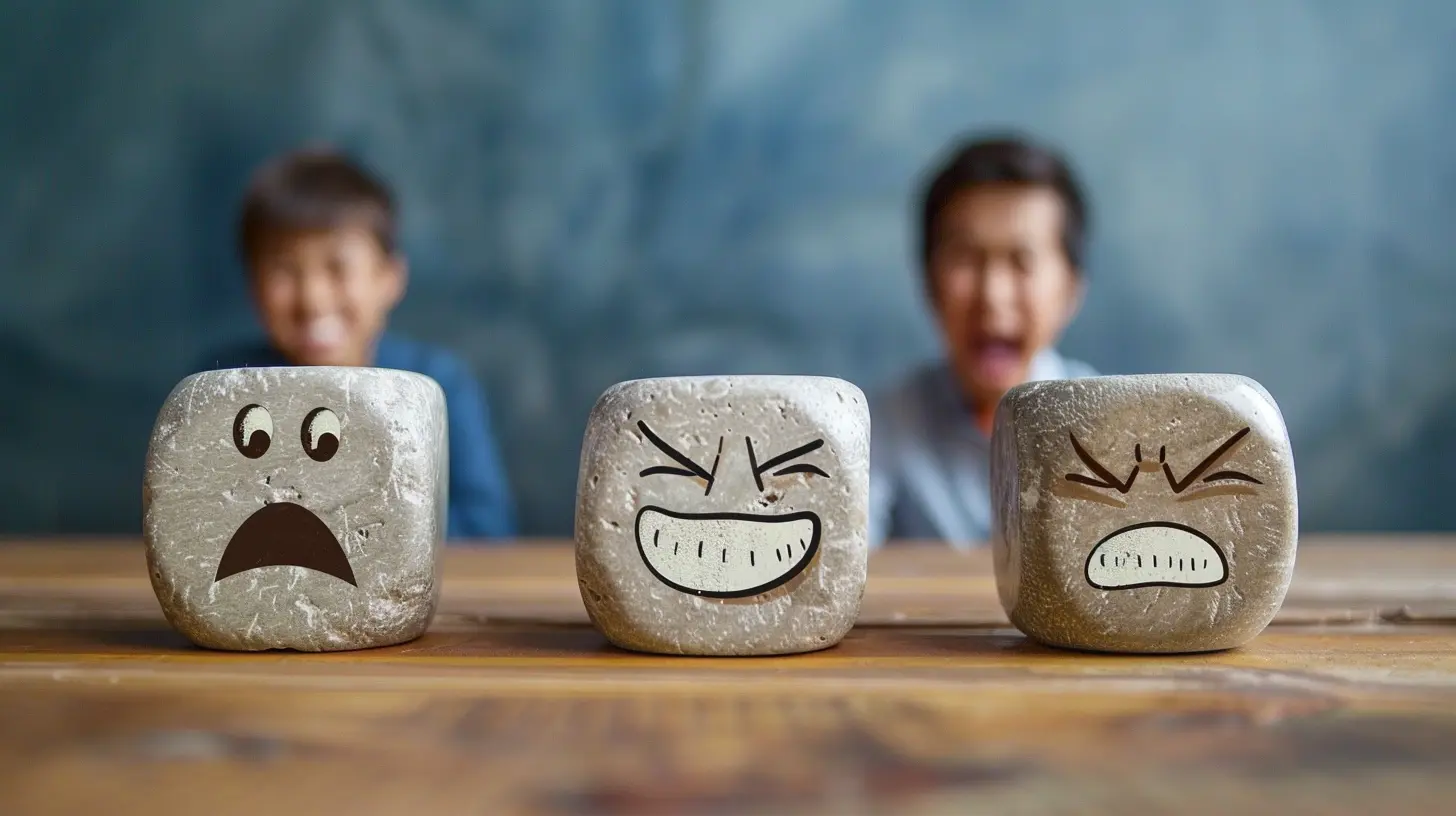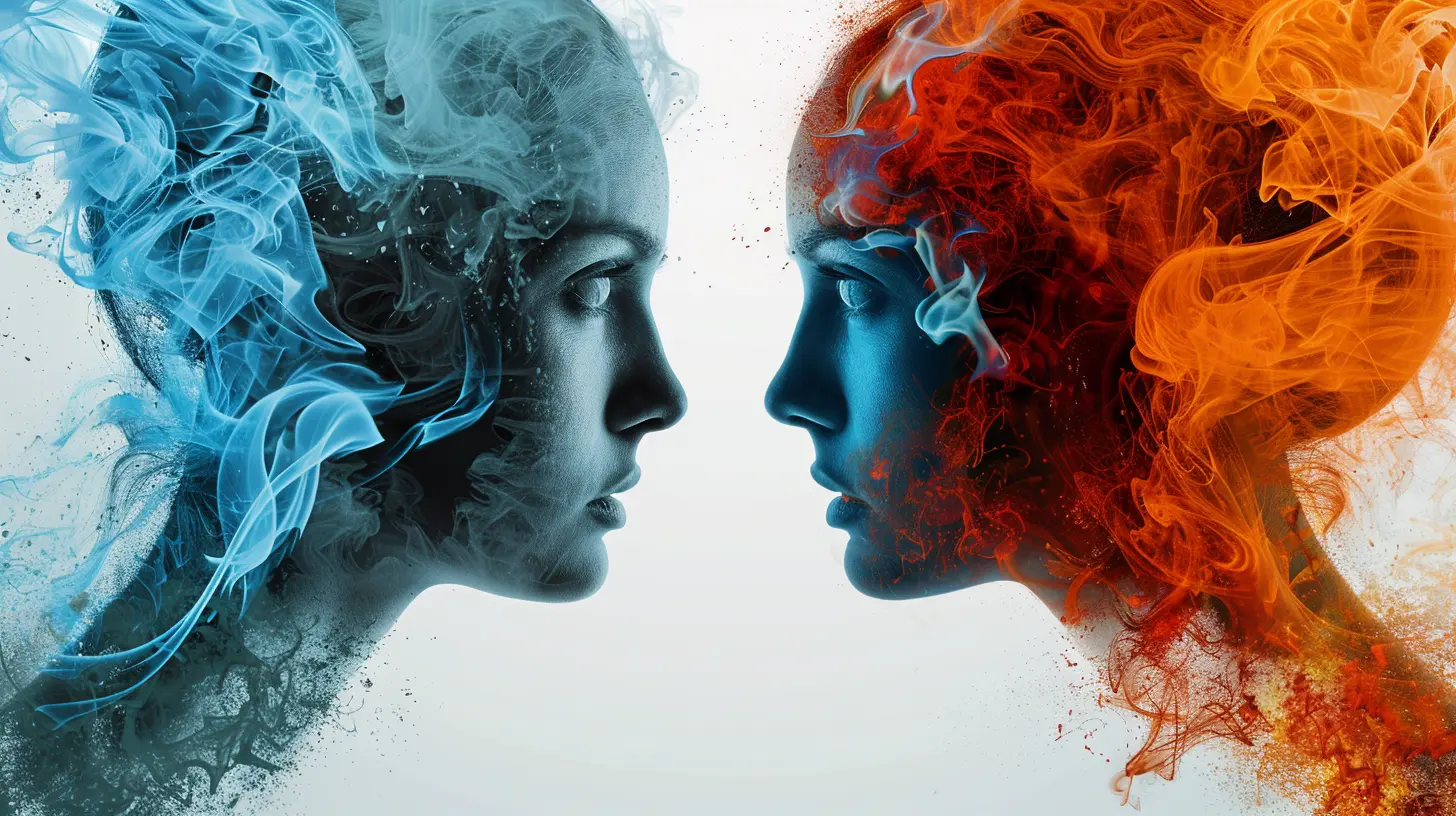The Importance of Emotional Regulation in Conflict Resolution
29 June 2025
Conflict—it's one of those things we all face, right? Whether it’s a heated argument with a partner, a passive-aggressive email from a coworker, or that one friend who always seems to push your buttons. Conflict is part of life. But here's the real kicker: it’s not conflict itself that ruins relationships or drives us crazy—it’s how we handle it.
Enter emotional regulation: the unsung hero of conflict resolution. It’s that behind-the-scenes skill that helps keep your cool when tensions rise and keeps conversations from turning into shouting matches. In this article, we’re going to break down what emotional regulation is, why it matters so much in resolving conflict, and how you can get better at it—because let’s face it, we all could use a little help dealing with tough emotions sometimes.
What Is Emotional Regulation, Anyway?
Let’s start with the basics. Emotional regulation is your ability to manage and respond to emotional experiences in a way that’s socially acceptable and flexible. Sounds technical, right? But think of it this way—it's like being the thermostat of your emotions instead of the thermometer. Instead of just reacting to every emotional spike like a thermometer rising with heat, you're adjusting the temperature to stay comfortable.It doesn’t mean ignoring your feelings or bottling them up. In fact, it’s the opposite. It’s about understanding your emotions, accepting them, and then choosing how and when to express them. You're still feeling everything—you’re just steering the ship instead of letting the waves toss you around.
Why Emotional Regulation Matters in Conflict
Now that we're on the same page about what emotional regulation is, let’s dive into why it’s such a big deal when it comes to conflict resolution.1. It Keeps Conversations From Exploding
We've all been there. Something triggers us, and BAM—we're yelling, crying, or storming off before we even process what’s happening. That’s what emotional dysregulation looks like. When emotions hijack our brain, we lose access to the rational, problem-solving part of ourselves. It’s like trying to fix a car engine while it’s on fire.But when we regulate our emotions, we create space. We pause. We respond rather than react. That difference can turn an argument into a meaningful dialogue rather than a battlefield.
2. It Encourages Empathy
Here’s the thing—when you’re overwhelmed by your own emotions during a conflict, it becomes almost impossible to understand someone else’s perspective. Emotional regulation helps you get out of your own head for a second and consider, “Hey, what might they be feeling right now?”That moment of empathy can be the bridge that brings two clashing people back together. In many cases, people just want to be heard and understood. By keeping your emotions in check, you give space for that to happen.
3. It Prevents Escalation
Emotions are contagious. Ever notice how quickly a tension-filled room gets more intense when someone raises their voice or slams a door? That’s emotional contagion in action. Emotional regulation can serve as a calming anchor in a storm—like being the lighthouse guiding the ship to safety.When you stay calm, others often follow your lead. You set the tone, and the conflict becomes more manageable.
How Emotional Regulation Affects the Brain in Conflict
Alright, let’s get a little nerdy for a sec. Understanding what’s happening in your brain during conflict can actually help you manage it better.When you're in conflict, your amygdala (the part of your brain that detects threats) goes into overdrive. It’s your brain’s alarm system—and it’s great when you’re in real danger. But it’s not so helpful when your roommate forgets to do the dishes.
When the amygdala is in charge, it downgrades the prefrontal cortex—the part responsible for reasoning and decision-making. Emotional regulation helps quiet that alarm system and brings your logical brain back online. That switch can be the difference between lashing out and having a productive conversation.
The Real-Life Benefits of Emotion Regulation in Conflict
This isn’t just psychology talk. Let’s look at how emotional regulation shows up (or doesn’t) in everyday life.In Romantic Relationships
Picture a couple arguing about money. One partner feels unheard, the other feels blamed. Emotions flare. Now, without emotional regulation, that conversation can spiral into shouting and personal attacks: “You never listen!” “Well, you’re irresponsible!” Sound familiar?But when both partners regulate their emotions, they can say things like, “I feel anxious when I think about our financial future. Can we talk about a plan?” Game changer, right?
In The Workplace
Conflicts at work are inevitable. Maybe a coworker took credit for your idea. Your first reaction might be to confront them aggressively. But emotional regulation lets you take a breath, approach them professionally, and express your concerns without burning bridges.That single skill can be the difference between moving up the career ladder or being seen as “difficult to work with.”
In Parenting
Kids will test your patience. That’s their job. But how you respond when your child throws a tantrum speaks volumes. Do you meet their meltdown with your own? Or do you stay grounded and guide them through it?Spoiler: kids learn emotional regulation from you. So by managing your own emotions, you're teaching them to do the same.
Tips to Improve Emotional Regulation During Conflict
Okay, so emotional regulation sounds great—but how do you actually do it? Good news: it’s a skill you can build. Here are some down-to-earth tips to get better at it.1. Name It to Tame It
This one’s simple but powerful. When you feel a flood of emotion coming on, pause and ask yourself, “What exactly am I feeling right now?”Sad? Angry? Embarrassed? Frustrated?
Naming your feelings helps you understand them. And when you understand your emotions, they feel less overwhelming and more manageable.
2. Breathe—Seriously, Just Breathe
Have you ever noticed how shallow your breathing gets when you're upset? Slow, deep breaths signal to your brain that you’re safe, which calms your nervous system.Try this: inhale for 4 seconds, hold for 4, exhale for 4. Do it a few times. It works. It’s like hitting the pause button on your emotions.
3. Take a Timeout (Yes, Even as an Adult)
Sometimes, you just need a break. Step away for a few minutes. Go for a walk. Splash cold water on your face. Do anything that helps reset your brain.Coming back to a conflict with a clearer head can make all the difference.
4. Use “I” Statements
Instead of saying, “You never listen,” try, “I feel ignored when I’m not heard.” This shifts the focus to your feelings rather than attacking the other person, which keeps the conversation less defensive.It’s a small tweak that leads to much better outcomes.
5. Practice, Practice, Practice
Like any skill, emotional regulation takes practice. You won’t nail it every time—and that’s okay. The goal isn’t perfection, it’s progress. Reflect on past conflicts and ask yourself, “What could I have done differently?”Every conflict is a chance to grow.
Emotional Regulation Isn’t About Weakness—It’s About Strength
A lot of people think keeping your emotions in check means you’re being fake or weak. But honestly? It’s the opposite. It takes real strength to stay calm when you’re angry, to listen when you want to yell, to pause when you want to react.Emotional regulation is like emotional intelligence’s best friend. It’s not about suppressing how you feel—it’s about choosing how you express it. That kind of control isn’t easy—but it’s powerful.
When Emotional Regulation Feels Impossible
Let’s be real—there are times when emotional regulation feels completely out of reach. Maybe you're dealing with trauma, chronic stress, or mental health challenges. That’s totally valid. In those cases, seeking support from a therapist can make a world of difference.There’s no shame in getting help to better understand and manage your emotions. Therapy is like emotional training wheels—it gives you the tools and support to eventually ride on your own.
Final Thoughts
At the end of the day, conflict is unavoidable. But it doesn’t have to be destructive. The way we manage our emotions during conflict can either build bridges or burn them. Emotional regulation is the key that unlocks healthier relationships, more productive conversations, and a calmer, more centered life.So next time you feel your blood boiling during an argument, try to pause. Breathe. Name your emotion. Choose your response. It won’t be easy at first—but with time, it gets easier. And trust me, it’s so worth it.
Because when you can manage your emotions, you can manage just about anything.
all images in this post were generated using AI tools
Category:
Emotional RegulationAuthor:

Paulina Sanders
Discussion
rate this article
1 comments
Rayna Middleton
Emotional regulation is key in conflict resolution, enabling individuals to respond calmly and constructively. By managing emotions effectively, we can foster understanding, improve communication, and find mutually beneficial solutions, ultimately strengthening relationships.
July 18, 2025 at 4:45 AM

Paulina Sanders
Thank you for highlighting the crucial role of emotional regulation in conflict resolution. Your insights on fostering understanding and improving communication are spot on and essential for building stronger relationships.


